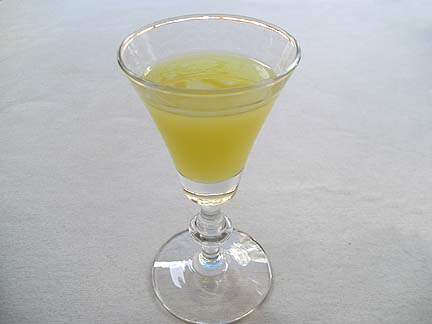(University of Chicago geophysicists, from Veg For Life)
The Silly: The Meatrix: "It is all around you, Leo Hamderson. Take the red pill and I'll show you the truth."
Think about this the next time you're about to order a steak. Livestock farming is super inefficient, using up 8lbs of grains to produce each pound of meat that appears on the shelf -- but meat doesn't have any nutritional advantages, so there isn't any good reason we persist in doing it, other than meat's comfortable position in the status quo (and on take-out and fast-food menus nationwide). Not only that, over 70% of American grain and corn is fed to farm animals, instead of people! That same amount could feed 800 million hungry people.
Switching to a vegetarian diet has broad health benefits: statistics on a variety of issues, from heart disease, diabetes, obesity, and cancer to osteoporosis, meat-related proliferation of resistant "super-bug" microbes, and food-borne pathogens support cutting out meat entirely. More on nutrition here. The tragedy of livestock animals' short, pain-filled lives and the damage they innocently wreak on our soils and our waters is an epidemic. Personally, I have ignored it for convenience sake for too long, and it's time to make a conscious choice to stop. Recognizing the consequences of one's actions is a necessary step to being a conscientious citizen and to work toward changing for the better.
"I don't understand why asking people to eat a well-balanced vegetarian diet is considered drastic, while it is medically conservative to cut people open and put them on cholesterol-lowering drugs for the rest of their lives."
- Dean Ornish, M.D.
There are even more potential benefits of vegetarianism related to the state of the environment. Factory farming, the majority source of milk and cheese in the U.S., produces such concentrated wastes as to pollute the land beyond the ability to rebound naturally. Animal meat provides a very concentrated source of accumulated human-created toxins, which get stored in their fatty tissue. Eating the plants they feed on instead makes people less likely to suffer from ailments that have arisen as a result of our landfill-happy culture and the subsequent leaching of endocrine disruptors, heavy metals and cancer-causing agents that permeate the water that Daisy the dairy cow or that your Christmas ham end up drinking.
And let's not forget the fish. Overfishing has resulted in a complete imbalance of the oceanic food chains, and with the nitrogenous and phosphoric farm waste flows contributing to the problem, dead zones dominate once-vibrant waterways. Oxygen-depleting organisms have made waters even more uninhabitable for complex, higher organisms that work to keep smaller ones in check. Algal blooms (also known as a "red tide") are more common now than ever, and the drought will surely have an amplifying effect for the eastern United States (see notes from new hampshire for more on that). Farmed fish aren't any better; they consume 3 pounds wild fish, from already-barren oceans, to every pound produced.
My conclusion is that my meat consumptions stops, now. I will try to eliminate dairy products as well, but my primary priority is to start treating the flesh of animals like the sentient beings they are, and let them be. I'll leave you with a quote:
"Kindness and compassion toward all living things is a mark of a civilized society. Only when we have become nonviolent towards all life will we have learned to live well ourselves."
-Cesar Chavez







